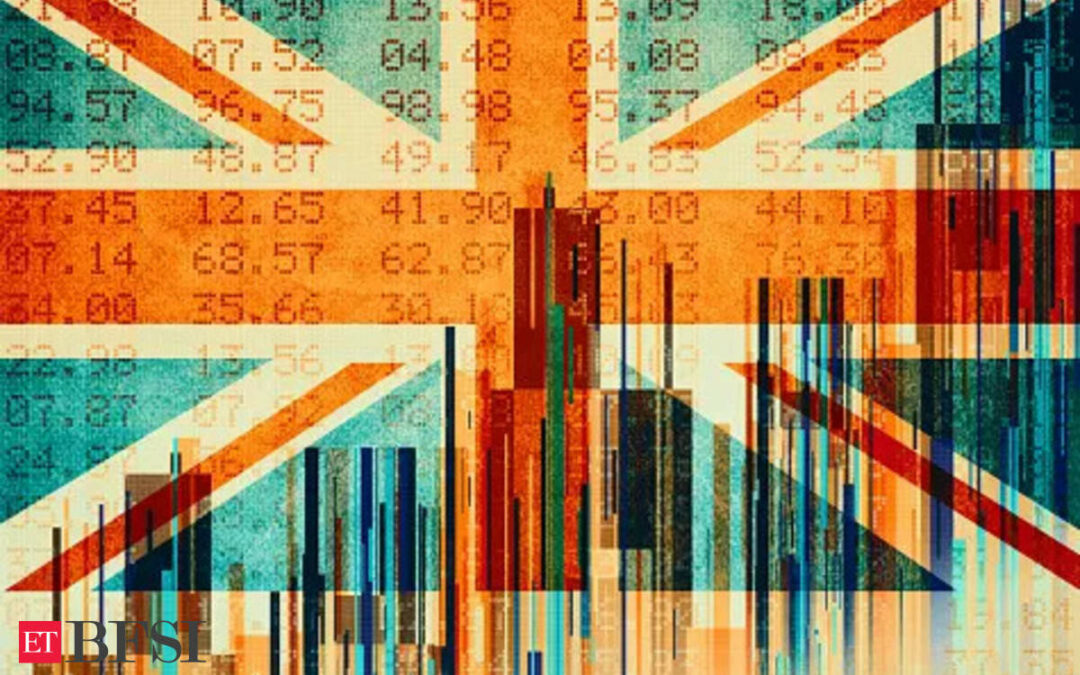LONDON – Britain’s economy returned to growth in January after entering a shallow recession in the second half of 2023, offering some relief to Prime Minister Rishi Sunak ahead of an election expected this year, official data showed.
Gross domestic product grew by 0.2% month-on-month – boosted by a rebound in retailing and house-building – after a fall of 0.1% in December, in line with economists’ expectations in a Reuters poll.
“The economy picked up in January with strong growth in retail and wholesaling,” Liz McKeown, a director at the Office for National Statistics, said. “Construction also performed well with house-builders having a good month, having been subdued for much of the last year.”
However, it is too early to know for certain if the economy is no longer in recession. GDP shrank by 0.3% in the final quarter of 2023 and 0.1% in the quarter before – meeting the technical definition of recession widely used in Europe.
Britain’s economy has been very sluggish since its initial recovery from the COVID-19 pandemic, beset by a surge in the cost of energy imports from Russia’s invasion of Ukraine and, more recently, by high Bank of England interest rates.
But with inflation at 4% in January, down from double-digit rates in much of last year, and forecast to return to its 2% target soon, the squeeze on household spending is easing and the BoE is starting to consider when to cut interest rates.
Sterling fell against the U.S dollar and the euro shortly after the GDP figures were released, and investors added to their bets of a rates cut in June, although the first one is not fully priced in until August.
WEAKER THAN A YEAR AGO
Wednesday’s data showed that GDP in January was 0.3% lower than a year earlier and shrank by 0.1% in the three months to January, both in line with economists’ forecasts.
“While the last few years have been tough, today’s numbers show we are making progress in growing the economy,” finance minister Jeremy Hunt, said.
Rachel Reeves, the opposition Labour Party’s would-be finance minister, said the Conservatives under Sunak and his predecessors had presided over “14 years of economic decline” and were to blame for the most recent recession.
Labour is running far ahead of the Conservatives in opinion polls with an election expected in the second half of this year. The opposition party is now seen as more trusted to run the economy than the Conservatives, according to some polls.
The government’s Office for Budget Responsibility last week forecast an expansion of 0.8% in 2024, more than the BoE’s projection in February of around 0.25% growth.
Business surveys have pointed to a pick up with purchasing managers’ index data rising to a nine-month high in February. Previously published ONS data for January showed the biggest retail sales jump since COVID restrictions were lifted in 2021.
Wednesday’s figures showed that construction output – which is often volatile – jumped by 1.1% in January, its biggest monthly rise since June and led by a 2.6% rise in private-sector house-building, which had been depressed by high interest rates.
Ruth Gregory, deputy chief UK economist at Capital Economics, said the data may not move the dial much for the BoE.
“A 0.1% quarter-on-quarter rise in Q1 would match the Bank’s forecast and with domestic inflationary pressures fading, we think a rate cut this summer – perhaps in June – is still the most likely outcome,” Gregory said.











